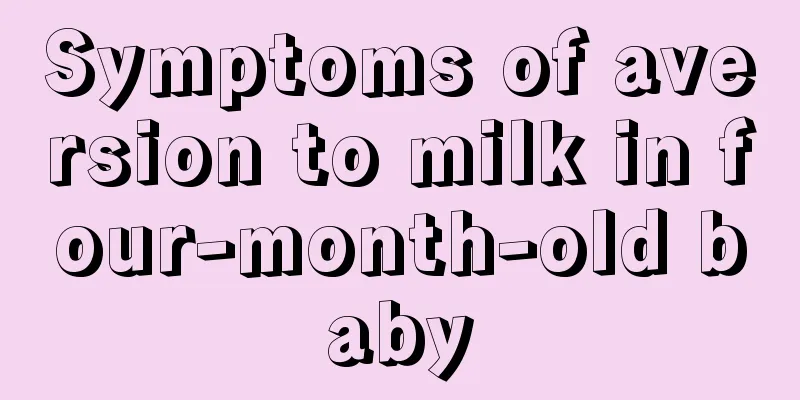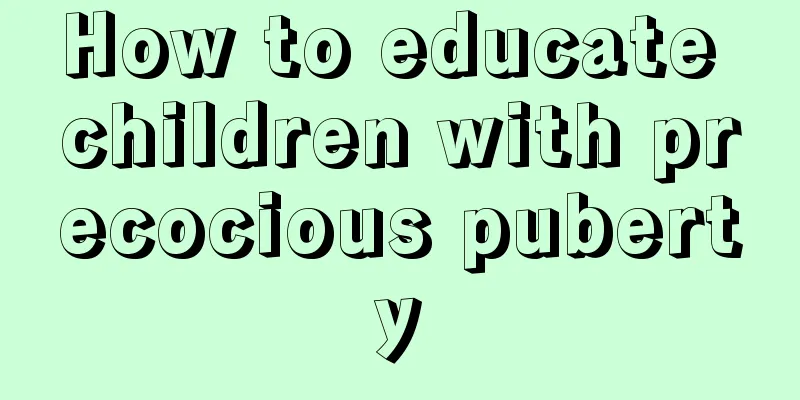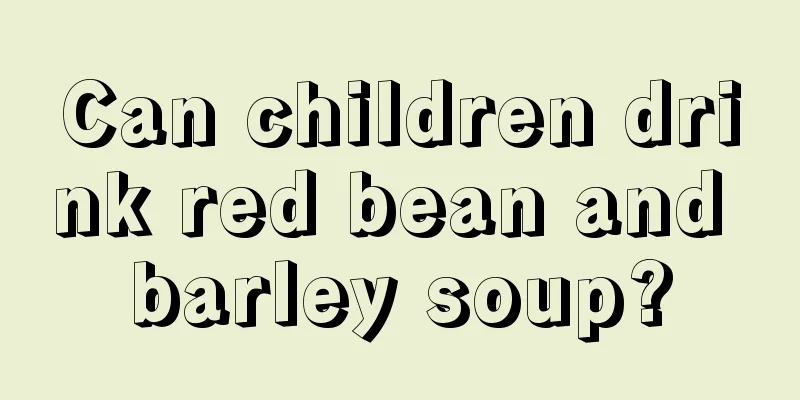Symptoms of aversion to milk in four-month-old baby

|
Nowadays, many babies have a good appetite for breastfeeding and can eat a lot at one time, so parents don’t have to worry. However, when a baby with a good appetite suddenly shows an aversion to and resistance to breastfeeding at four months old, you must be careful about possible symptoms of milk aversion. Milk aversion includes many factors, such as physiological factors, pathological factors or psychological factors, etc. Causes of milk aversion 1. Physiological factors: When the baby is unwilling to drink milk, the first thing to do is to observe whether it is caused by physical discomfort. If you also have symptoms such as vomiting, constipation, abdominal distension, diarrhea, fever, etc., you should seek medical treatment immediately. 2. Psychological factors: Since the baby drinks the same food every day since birth, he may develop a dislike for drinking milk after a period of time. This is also the baby's way of reminding his parents that it is time to feed him something different. If you give your baby liquid food at the right time, his appetite will gradually recover. If the baby is active and in good spirits, but just has a slightly poor appetite, parents don't need to worry too much. Symptoms of milk withdrawal Physiological milk aversion period: The characteristic is that the baby develops normally and is very energetic, but the amount of milk consumed is temporarily reduced. "Physiological milk aversion period" is a very common phenomenon in infants and often occurs in two periods. Some newborns have always drunk a normal amount of milk, but when they are 2 or 3 months old, their milk intake suddenly decreases. However, their energy and weight are normal, and they do not show any pathology. This is mainly because sucking milk is a reflex action before 2 or 3 months, and the baby will drink as long as milk is given. However, the amount of milk will be adjusted according to the actual needs of the body and appetite, so the food intake may decrease. The second period is after 4-6 months, when the baby's physical development and sensory functions become more mature, and he begins to be curious about the surrounding environment and likes to explore. Naturally, he is easily distracted from "eating", which is the main reason for milk aversion. In addition, you can start adding complementary foods to your baby after four months. After eating a variety of foods that are different from milk, your baby is likely to "get bored with the old and love the new" and no longer be obsessed with the single flavor of "milk". They may even find sucking their thumb or playing with a trash can more fun than drinking milk, which is why they may become averse to milk. Psychological milk aversion: Due to the interference of some factors, children's interest in breastfeeding, especially formula feeding, decreases, and the amount of milk they drink decreases, so they are called "milk aversion". 1. The environment when the child is eating is too noisy. As babies grow older, their nervous systems will gradually mature. Among them, the interest in external affairs is gradually increasing. If the child is eating, the parents' movement or other noises may distract the child's attention. Therefore, when the child is eating, parents can eat or chew food in their mouths, such as chewing gum, to guide the child to chew. When the child is drinking milk or eating, it is best for parents not to talk or make other actions, so that the child can concentrate more on eating. 2. The taste of the food you eat varies greatly. Children are fed breast milk or formula as soon as possible after birth. However, when the child is 3-4 months old, many parents will add fruit juice, calcium water and other liquids that taste much stronger than breast milk or formula milk to their children, and these liquids are also fed through bottles. This can easily cause confusion for children. Why do the same liquids fed from bottles taste so different? When children's sense of taste is somewhat developed, they will make a choice to avoid feeding with milk and wait for feeding with stronger taste such as juice. |
<<: Symptoms of choking in children
>>: The child only has a cough and no other symptoms
Recommend
Why does my baby have diarrhea after drinking milk powder?
My baby gets diarrhea as soon as he drinks milk p...
Newborn hug reflex?
As the baby grows, parents need to pay attention ...
What should children eat to supplement calcium? Calcium supplements should be supplemented in appropriate amounts!
Calcium is essential for children's growth. C...
Can Kuding Tea Cure Baby Eczema?
Kuding tea is a natural health tea. Many people d...
What is the best treatment for baby eczema?
Babies tend to cry easily when they have skin dis...
What are the symptoms of rectal polyps in babies
In our lives, many babies have some intestinal di...
How to tell if your baby is panting
When babies are young, their lung function is not...
What foods are good for children with bad breath caused by internal heat?
If children have bad breath due to internal heat,...
How to relieve toothache in children
Toothache is a common occurrence in adults becaus...
What should I do if my child's teeth become loose?
Every child will always encounter some bumps and ...
What to do if a child dislocates his arm?
Many families are still worried when they see the...
What are the treatments for allergic cough in children?
Cough in children is a relatively common disease....
White discharge in baby's urine
It is very common for young people to have white ...
What disease will a child develop when he is forced to cut his palm?
In life, when many children are sick, doctors wil...
What to do if your baby's skin is rough
The baby's skin is rough, which is a very abn...









